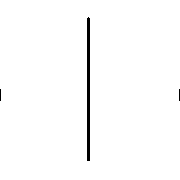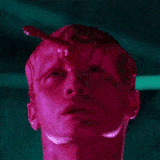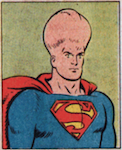|
objectively bad posted:If it was a non-deterministic universe the Heptapods could just choose to avoid needing the human's help altogether once they've seen that timeline, so why would they say they need human's help? Because they know what they've seen is exactly what has to happen. for the same reason anyone able to predict a likely outcome doesn't just skip past all the intervening steps? Because they preferred the slightly convoluted option that put one or two of them at risk in drafting humanity to whatever the unknowable alternatives were, in the same way that Louise prefers the life she forsees with all its pains and joys to staying alone and avoiding suffering? This is a silly question. There's no point in them saying or doing anything in particular in a deterministic universe, because whatever happens including anything they say or do is simply what's going to happen, and if physics says they make an inaccurate word choice well tough titty.
|
|
|
|

|
| # ? Apr 27, 2024 21:25 |
|
Sir Kodiak posted:This is either Arrival making a boring point about the future being predetermined, or making a relatable point about coming to terms with both the good and bad in life. I believe it is the latter, and I see nothing in the movie that suggests it to be the former. It's both? You can't avoid what'll happen in the predetermined future, so come to terms with the good and the bad. Sir Kodiak posted:If we watch a movie and someone driving a car takes a right turn, it is, of course, the case that we will never watch the movie and see them take a left instead of the right. However, for us to believe that the character was diegetically, in the universe of the movie, predetermined to make a right turn, should require more than just seeing them take the right turn. At the very least, for us to believe that the movie is making an affirmative statement about life being predetermined should require more than just seeing them take a right turn while driving. The problem with considering a reality in which the character could have made a left turn, is that it would require the past events that led the character to make the right turn not happen. Every past moment in his timeline led to that right turn, why would he make a left? The enjoyment of a movie is discovering they make a right, and the illusion that until we observe the character making their turn, they could have made a left. Sir Kodiak posted:Similarly, a character in a movie telling us that they believe something will happen in the future if they do something, and them acting in reliance of this belief, does not mean that the movie is making an affirmative statement about life being predetermined. No, but accepting that character has seen or experienced something that is yet to happen would require the existence of a determined timeline that leads to that moment and unless we're given reason to believe some characters exist outwith that timeline, I don't see why we would believe they can do anything other than what happens in that determined timeline. Sir Kodiak posted:
No, but to heptapods what is perceive sequentially as yet to happen, and choices yet to be made, has already happened and have already been made. So while choices are perceived to be being made, in timeline that allows for heptapods to perceive time the way they do, the outcome of every decision is known. It's not that they know what must be done, to them it's all just done because they've experienced the end of their timeline, that contains all the characters that experience time sequentially.
|
|
|
|
Its not like any of this is even supposed to fit into what we would see as "logic", that's kind of the point. The Heptapods are teaching humanity a new logic that we aren't used to, and can't possibly comprehend until our primitive brains adjust to it.
|
|
|
|
A Wizard of Goatse posted:for the same reason anyone able to predict a likely outcome doesn't just skip past all the intervening steps? Because they preferred the slightly convoluted option that put one or two of them at risk in drafting humanity to whatever the unknowable alternatives were, in the same way that Louise prefers the life she forsees with all its pains and joys to staying alone and avoiding suffering? This is a silly question. There's no point in them saying or doing anything in particular in a deterministic universe, because whatever happens including anything they say or do is simply what's going to happen, and if physics says they make an inaccurate word choice well tough titty. When does Louise perceive a life alone without her daughter? She only experiences one timeline, just non-linearly.
|
|
|
|
objectively bad posted:When does Louise perceive a life alone without her daughter? She only experiences one timeline, just non-linearly. Seeing one timeline does not demonstrate or imply that it is the only one that exists. Seeing only one camera angle in a movie is not the movie telling you that the world outside that field of view does not exist. For large portions of the movie to have any meaning, the question at the end needs to be meaningful. She also doesn't remember who the father is, doesn't recognize the man she'll spend years with, until the cusp of her decision in the last minutes of the movie. That we don't see the timeline where she burns her driver's license and becomes a truck stop fry cook is secretly the entire point of the movie but this isn't significant in any way? A Wizard of Goatse fucked around with this message at 22:48 on Apr 7, 2017 |
|
|
|
objectively bad posted:It's both? You can't avoid what'll happen in the predetermined future, so come to terms with the good and the bad. This is, once again, you making a personal philosophical decision that we, as real human beings, live in a predetermined universe without free will. You are welcome to do so. But I don't see anything in the movie this thread is about that supports it. That is what I would be interested in discussing, the movie. objectively bad posted:No, but to heptapods what is perceive sequentially as yet to happen, and choices yet to be made, has already happened and have already been made. So while choices are perceived to be being made, in timeline that allows for heptapods to perceive time the way they do, the outcome of every decision is known. It's not that they know what must be done, to them it's all just done because they've experienced the end of their timeline, that contains all the characters that experience time sequentially. Nah, there's plenty of fictional ways to perceive the future that don't rely on absolute predeterminism. It shows up in movies all the time. Marty sees the future in Back to the Future 2 and then goes back and changes it. That we see the aliens and Amy Adams choose to embrace the future they saw does not mean the film is communicating that the couldn't have decided otherwise. Did you read the short story this movie is based on? I think you may be conflating the two. The short story goes into the subjective experience of what it's like to see your whole life. The movie doesn't include this, and instead adds a person specifically acting on future knowledge in the present. It's a different story. Sir Kodiak fucked around with this message at 21:56 on Apr 7, 2017 |
|
|
|
Basebf555 posted:Its implicit in the way the Heptapod language works and how they experience time. Why would the Heptapod's be here on Earth doing something that they claim will help them in 3000 years if the future can be changed? How could they possibly predict what's going to happen in 3000 years if the future is mutable? If this weren't the case, the heptapods wouldn't be on earth teaching people knowledge of the future, with the explicit purpose of having an impact on the future.
|
|
|
|
Sir Kodiak posted:A character having a vision of the future does not mean that future is set in stone. There's plenty of stories in which a character has a vision of the future and this future doesn't come about because they fight against it. Likewise, in those cases where a character tries and fails to change the future (often personally causing whatever it is they set out to prevent), it's usually due to one of the following: 1. Incomplete information on how the predicted future came to be (Heptapod future-sight appears to give a bit more detail than what characters usually get in that sort of situation) 2. Acting impulsively without taking the time to think about what might have led to the undesirable future, and what might be an effective strategy for changing it (if you have the patience and discipline to learn Heptapod, that's unlikely to be a problem for you). Personally, I fail to see how an immutable timeline could possibly be compatible with the ability to send information back in time. Under time as we know it, the choices we make absolutely do influence our future - it's just that our ability to shape our destiny is constrained by the fact that we often can't fully know the consequences of our actions. If, at the time you're making a given decision, you have access to future visions giving you full knowledge of the outcome of whatever you were about to choose, and said knowledge leads you to the conclusion that making a different choice would yield a better outcome, what's to stop you from making the superior choice?
|
|
|
|
Cockmaster posted:Likewise, in those cases where a character tries and fails to change the future (often personally causing whatever it is they set out to prevent), it's usually due to one of the following: Right. We know what it looks like for a film to communicate that a character has a fate they can't escape. We know what it looks like for a film to communicate that a character can defy fate. Arrival avoids showing either. The movie is about the main character choosing to not change what's going to happen.
|
|
|
|
Debating the mechanics of the universe for pages is missing the point, which is to pose the question "If you could do it all over again, would you?" with the twist that she can answer ahead of time.
|
|
|
|
Toady posted:Debating the mechanics of the universe for pages is missing the point, which is to pose the question "If you could do it all over again, would you?" with the twist that she can answer ahead of time. Right, that's what I've been saying.
|
|
|
|
Toady posted:Debating the mechanics of the universe for pages
|
|
|
|
Sir Kodiak posted:Nah, there's plenty of fictional ways to perceive the future that don't rely on absolute predeterminism. It shows up in movies all the time. Marty sees the future in Back to the Future 2 and then goes back and changes it. That we see the aliens and Amy Adams choose to embrace the future they saw does not mean the film is communicating that the couldn't have decided otherwise. Right, but the distinction there is that the ability to change the future is explicitly shown in back to the future 2. We see the events of the future changing. We don't see that in Arrival. Sir Kodiak posted:Did you read the short story this movie is based on? I think you may be conflating the two. The short story goes into the subjective experience of what it's like to see your whole life. The movie doesn't include this, and instead adds a person specifically acting on future knowledge in the present. It's a different story. I've read the short story, but even in the movie I think everything that exists within the heptapods' timeline is determined. If we accept Louise's conclusion that learning heptapod allows you to see your life from start to finish then the heptapods foresaw every conversation they had with Louise & Ian, and although Louise & Ian perceived their actions as being undetermined, everything that happened within those conversations must have happened exactly as as the heptapods have already experienced it to happen. If Louise & Ian had the ability to do anything differently, then Louise's conclusion that learning heptapod allows you to see your entire life from start to finish must be incorrect because that different version of events occurred in the heptapods' timeline. If Louise can see her life from start to finish, does Ian have the free will to do anything other than what Louise has seen him do? Can he choose not to leave Louise? If both heptapods have both see their entire lives from start to finish, can either of them choose not to fulfil their roles in each others' timelines? objectively bad fucked around with this message at 19:09 on Apr 11, 2017 |
|
|
|
objectively bad posted:Right, but the distinction there is that the ability to change the future is explicitly shown in back to the future 2. We see the events of the future changing. We don't see that in Arrival. We don't see it in Arrival because Arrival is a movie about choosing to (re)live something even knowing it ends in tragedy. You have returned to your old argument that because we don't see something happen, it is excluded as having even been possible in the diegesis of the film. And you simply keep asserting this without actually pointing to specific things in the movie. You are badly misreading this film to make it about a woman who is trapped staring at her life go past. This requires ignoring Amy Adams's performance, where she sells the decision to have the child (again) as being joy with a shadow of tragedy. This requires ignoring how the film is structured such that the scenes of the child dying play as memories, how if you removed the sci-fi conceit the movie would read cleanly as a woman deciding to try to have another child after the previous one tragically died. To end with what? A movie about the horrifying scenario in which a woman can't but decide to have a child that dies, but presented without any horror. Like, I get that Amy Adams's decision to have her child anyways is what makes her visions of the future come true. That the depiction in the movie is consistent with the possibility of the characters living in a predetermined universe. But the movie does not affirmatively communicate that that's what is happening, it simply leaves it open as a possibility (because it isn't about that question). And nothing in the presentation of the movie communicate the subjective experience of viewing one's life from the side, as a whole – notably, unlike the short story, which provides point-of-view narration of seeing all of forty years of life simultaneously. If you want to keep arguing this, I feel like you need to start pointing to specific details in the movie and stop simply stating over and over again your opinion of what happened. Because at this point you just keep saying "no, everything is predetermined" without saying anything about how the movie communicates that, or what that means for the movie, or anything but your unsupported opinion on the practical mechanics of time travel.
|
|
|
|
I guess you started replying before I edited in my questions but I don't think my reasons why I think the Arrival universe is definitely deterministic will get any more concise than that so yeah, if that doesn't add something to the debate I guess we'll just leave it.
|
|
|
|
Hadn't noticed the edit as I was already writing. I'll respond now.objectively bad posted:If Louise can see her life from start to finish, does Ian have the free will to do anything other than what Louise has seen him do? Can he choose not to leave Louise? The movie does not explore this question. It is irrelevant to the movie except so far as the movie is a jumping-off point for a largely-unrelated philosophical discussion. objectively bad posted:I guess you started replying before I edited in my questions but I don't think my reasons why I think the Arrival universe is definitely deterministic will get any more concise than that so yeah, if that doesn't add something to the debate I guess we'll just leave it. Are you saying that asking me questions is the best you can do to communicate your reasons? Because while that's my impression of the best you've been able to do, but I'm surprised you'd put it out there like that.
|
|
|
|
Sir Kodiak posted:Hadn't noticed the edit as I was already writing. I'll respond now. I wouldn't say it's an unrelated philosophical discussion when people are saying the point of the movie is that Louise would choose to do it all again. If we conclude (through exploring the nature of the universe the story takes place in by considering the implications of multiple entities each foreseeing their own futures, all intertwined. see: my questions) that she couldn't choose to do anything differently then how can her non-existent choice be point of the movie? That's the conclusion I reached. Sir Kodiak posted:Are you saying that asking me questions is the best you can do to communicate your reasons? Because while that's my impression of the best you've been able to do, but I'm surprised you'd put it out there like that. I'm saying that asking you those questions are the best I can do to communicate my reasons, and I have no problem admitting I'm terrible at communicating my points. objectively bad fucked around with this message at 20:30 on Apr 11, 2017 |
|
|
|
objectively bad posted:I wouldn't say it's an unrelated philosophical discussion when people are saying the point of the movie is that Louise would choose to do it all again. If we conclude (through exploring the nature of the universe the story takes place in by considering the implications of multiple entities each foreseeing their own futures, all intertwined. see: my questions) that she couldn't choose to do anything differently then how can her non-existent choice be point of the movie? That's the conclusion I reached. If she couldn't choose to do anything differently, then, yes it would be weird for the point of the movie to be that she's choosing to relive the death of her daughter. That is one reason why we should ask that you have an affirmative argument for Amy Adams not having a choice. Because if Amy Adams doesn't have a choice, then all those scenes about her choice and how she makes it would be weirdly out of place in the movie. And we should be suspicious of a reading of the movie that fails to account for so much of the movie. What is the relevance of the visions being intertwined? It is not any less plausible for multiple people to see a future that gets changed than for one person to see a future and then change it. Like, yeah, if she decided differently then multiple predictions would be wrong. So what? It may not be depicted in the movie, but plenty of movies depend on the tension between what does happen and what could have happened, so there's no reason to say that in this particular movie that only what did happen could have happened.
|
|
|
|
Sir Kodiak posted:If she couldn't choose to do anything differently, then, yes it would be weird for the point of the movie to be that she's choosing to relive the death of her daughter. That is one reason why we should ask that you have an affirmative argument for Amy Adams not having a choice. Because if Amy Adams doesn't have a choice, then all those scenes about her choice and how she makes it would be weirdly out of place in the movie. And we should be suspicious of a reading of the movie that fails to account for so much of the movie. It doesn't fail to account for so much in the movie, my interpretation is that the movie is about the false perception of choice given to those experiencing time sequentially. So the movie is about Louise embracing the realisation that she doesn't have a choice as she sees the future she is determined to have. Sir Kodiak posted:What is the relevance of the visions being intertwined? It is not any less plausible for multiple people to see a future that gets changed than for one person to see a future and then change it. Like, yeah, if she decided differently then multiple predictions would be wrong. So what? It may not be depicted in the movie, but plenty of movies depend on the tension between what does happen and what could have happened, so there's no reason to say that in this particular movie that only what did happen could have happened. Because it shows those without knowledge of the future as they will act in the future. How can Ian be said to have free will if he will do everything as Louise has seen it? On the flip side: if we believe Ian still has the ability to exercise free will within his sequential experiencing of time, then how can Louise possibly foresee a future that depends on decisions that Ian has not yet made? The only way to logically answer these questions is that Louise has an ability that is neither shown, nor described, to experience every possible future that considers that considers every possible undetermined decision by every free entity within her life or, that each character exists within it's own unique timeline, so Ian can choose to diverge from the timeline Louise has seen into his own without ruining Louise's vision of her timeline (while another version of Ian continues to exist within Louise's time) which again, is neither shown nor described. Determinism seems like a much simpler answer that doesn't require abilities or branching timelines that aren't shown. objectively bad fucked around with this message at 07:55 on Apr 12, 2017 |
|
|
|
objectively bad posted:It doesn't fail to account for so much in the movie, my interpretation is that the movie is about the false perception of choice given to those experiencing time sequentially. So the movie is about Louise embracing the realisation that she doesn't have a choice as she sees the future she is determined to have. You're talking about two very different things in these two paragraphs. In the first paragraph, you're saying that Louise has no ability to change the future, even knowing the future, and comes to the realization that she has to simply enact the future that she has foreseen whether or not she wants to. That the gift of the power to see the future essentially makes you a passenger for the rest of your life, where you simply go through the motions carrying out various actions you already know are going to happen. This is what the short story is about, which it demonstrates through explicit narration about the subjective experience of carrying out conversations that you know the results of but you go through with anyways. In the second paragraph, you're conflating "free will" with acting randomly. And, hey, maybe that's a coherent definition. But nothing in Ian's behavior in the movie requires him to know the future and helplessly reenact it. Ian's actions would be predictable even in Back to the Future style time travel/prophecy, since it is an entirely common conceit that you can only change the future once you know about it. I have no problem with the claim that the film presents a universe that is sufficiently deterministic that prophecy has the possibility of working. That it presents a universe where if you see the future you can choose to enact it, and if you do so, it will come true. When I disagree with is your claim in the first paragraph, which is that Louise, given knowledge of the future, realizes she is trapped, unable to make new choices, and just thoughtlessly enacts everything she saw (as in the short story). There is nothing in the movie to demonstrate that this is the case (unlike the short story), and if you're going to keep pushing that line, I really need you to describe something in the movie other than an incredibly broad description of the plot. Like, you need to address why Amy Adams's performance includes her arriving in the future and being confused at what she's doing. Why the script includes her questioning who the daughter is. Because if she's just remembering the future, there's no reason for her future self to not know who her daughter is. And, note, the short story, which is explicitly about being trapped and watching time unfold, does not include any scenes of Louise acting confused about being unstuck in time.
|
|
|
|
Sir Kodiak posted:In the first paragraph, you're saying that Louise has no ability to change the future, even knowing the future, and comes to the realization that she has to simply enact the future that she has foreseen whether or not she wants to. That the gift of the power to see the future essentially makes you a passenger for the rest of your life, where you simply go through the motions carrying out various actions you already know are going to happen. This is what the short story is about, which it demonstrates through explicit narration about the subjective experience of carrying out conversations that you know the results of but you go through with anyways. My argument is that the same conclusion can be reached by considering the implications of what is explicitly shown in the movie. The second paragraph is my attempt at explaining how I reached the conclusion. Sir Kodiak posted:In the second paragraph, you're conflating "free will" with acting randomly. And, hey, maybe that's a coherent definition. But nothing in Ian's behavior in the movie requires him to know the future and helplessly reenact it. Ian's actions would be predictable even in Back to the Future style time travel/prophecy, since it is an entirely common conceit that you can only change the future once you know about it. You've misunderstood the argument here. I'm not saying free will is the ability to act randomly. Your argument is that Louise could choose not to continue along the timeline she has seen. I'm considering the implication of her being able to choose to continue along a determined timeline shared with other people. If Louise can choose to make everything she's seen come to pass, can Ian be said to have free will within that timeline even though what he will do is already determined by Louise choosing that timeline? If we assume the heptapods have made a choice to continue along the timeline they have seen, can Louise & Ian exercise free will within the timeline they share with heptapods? I don't see how any of them can be said to be exercising free will unless they are each protagonists within their own timeline whose actions can determine their own undetermined timeline and whose timeline aren't affected by the choices of others (who are perceived to be sharing the same timeline). If we accept there are multiple beings with the ability to see the future, and each of them have the ability to choose to avoid that future then they cannot possibly be observing the same timeline. Evidence of this would be any of them acting in violation with the observed timeline, which is not something that is shown in the movie. So while you're argument is the universe isn't explicitly explained as deterministic and I should have to prove that it is, my argument is that Louise having a choice isn't explicit shown in the movie and that unless you can prove she had one (either through an explicitly shown violation of the observed future, or that not having a choice would contradict the possibility of what is shown), then we shouldn't assume that she has one. Sir Kodiak posted:When I disagree with is your claim in the first paragraph, which is that Louise, given knowledge of the future, realizes she is trapped, unable to make new choices, and just thoughtlessly enacts everything she saw (as in the short story). There is nothing in the movie to demonstrate that this is the case (unlike the short story), and if you're going to keep pushing that line, I really need you to describe something in the movie other than an incredibly broad description of the plot. Like, you need to address why Amy Adams's performance includes her arriving in the future and being confused at what she's doing. Why the script includes her questioning who the daughter is. Because if she's just remembering the future, there's no reason for her future self to not know who her daughter is. And, note, the short story, which is explicitly about being trapped and watching time unfold, does not include any scenes of Louise acting confused about being unstuck in time. It's different perceptions of the same timeline. Those who experiences time entirely linearly, will be entirely ignorant of the future. Someone learning heptapod experience glimpses of the future without the context of everything between the present and that moment). Someone who knows heptapod will see their life from start to finish.
|
|
|
|
objectively bad posted:It's different perceptions of the same timeline. Those who experiences time entirely linearly, will be entirely ignorant of the future. Someone learning heptapod experience glimpses of the future without the context of everything between the present and that moment). Someone who knows heptapod will see their life from start to finish. What in the movie communicates Louise's subjective experience of this? How is this communicated in the movie?
|
|
|
|
Sir Kodiak posted:What in the movie communicates Louise's subjective experience of this? How is this communicated in the movie? We observe the lack of context when she doesn't understand what she's seeing in the future before she learns heptapod ("who is this girl?") and Louise says that when you really learn heptapod you can see what is to come (as opposed to being granted the ability to see what may come to pass.) Louise never explicitly states she's making a choice to live her life as she's seen it. She just says she knows the journey, where it leads and she embraces it. If you require an explicitly shown example of determinism, why don't you require an explicit demonstration of Louise altering the future to support the claim she has a choice to alter the future? You can claim she has a choice, but that can also be tested against what is shown in the movie. If we start from the premise that free will and the ability to alter the known future are both possible, then we have to conclude that those who cannot perceive the future and choose to ensure it happens as it does, do not have free will because every action they take within that timeline depends on the heptapod or Louise choosing that timeline. If Louise can choose not to live a certain timeline, then Ian is powerless to force her to. If the heptapods can choose to be on the timeline in which they visit earth and meet Louise, then there is nothing Louise can do to avoid meeting the heptapods. If this logic is applied to all beings with the gift of simultaneous perception of time, then how can anybody existing within that timeline exercise free will? So really the logical way for Louise to have a choice is for there to be branching timelines, which is not something explicitly shown in the movie. objectively bad fucked around with this message at 23:47 on Apr 12, 2017 |
|
|
|
Just saw Arrival. I didn't expect it to be a stealth reboot of Slaughter-House 5.
|
|
|
|

|
| # ? Apr 27, 2024 21:25 |
|
objectively bad posted:We observe the lack of context when she doesn't understand what she's seeing in the future before she learns heptapod ("who is this girl?") and Louise says that when you really learn heptapod you can see what is to come (as opposed to being granted the ability to see what may come to pass.) The reason I don't require myself to provide an explicit demonstration of Louise altering the future is because I've said again and again that the movie avoids taking a position on whether she can avoid the future in order to focus on the fact that she doesn't want to: Sir Kodiak posted:Right. We know what it looks like for a film to communicate that a character has a fate they can't escape. We know what it looks like for a film to communicate that a character can defy fate. Arrival avoids showing either. The movie is about the main character choosing to not change what's going to happen. Sir Kodiak posted:Unless I'm failing to remember something, the movie never addresses whether or not it would be possible for her to make a different choice in the "present." This is because the movie is not about the mechanics of time travel, but instead about using the sci-fi conceit of knowing the future to discuss a specific character coping with a tragedy. What I am disagreeing with is the interpretation that when Louise says she wants a baby that she's actually trapped in amber, just watching herself request to have a dying child, unable to do anything about it. The soft photography, the character's smile, these are just lies hiding that she's not really making a choice, hiding that she's just reading from a script. When I asked what in the movie communicates Louise's subjective experience, I wasn't asking for another nugget of plot summary. I'm asking about storytelling. Because everything cinematic about the movie points to it being a story about a woman coming to grips with an emotional tragedy and moving forward with the choice to have (the same / another) baby. Nothing in the presentation reflects the idea of being trapped, of being a puppet, of being forced to carry anything out. This is notably different from the short story, which contains multiple passages communicating what it's like to be an observer watching yourself speak prewritten lines while everyone else thinks that you have a choice. Your best argument is a massive extrapolation built entirely around theories of how time travel practically works. It's cute, from the perspective of a time travel story, that she choose to do the thing she saw herself having done. But it completely misses the emotional throughline of the movie to think that at the moment Louise says she wants to have a baby, that she isn't authentically deciding that, yes, she wants to have a baby.
|
|
|













